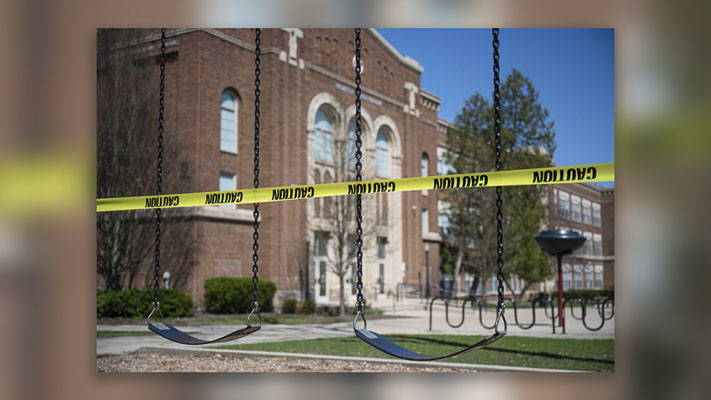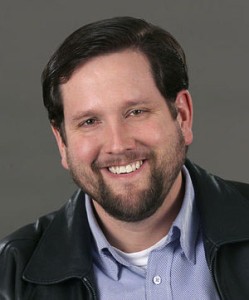
David Boze of the Washington Policy Center addresses the issue of school closures during the past two years and the potential for more going forward
David Boze
Washington Policy Center
Washington state public schools were closed nearly two years in response to the COVID pandemic, longer than health authorities recommended, and well after evidence was building that such a policy inflicted more harm on kids than gain in public health. But we kept them closed.

The initial closure is understandable. Public health authorities were dealing with a new disease of relatively unknown strength and consequence. COVID generated a great deal of fear, fear of crowds and fear of close contact, both of which schools have in abundance. But at a certain point, officials could see through the example of other states and even other countries, that there were ways to re-open schools and minimize or prevent learning loss and social harms, yet our schools remained closed.
Liv Finne, WPC’s Center for Education director, has just released a new study, “The effect of emergency-ordered school closings, learning loss and mask mandates on children,” which compels us to ask not only why that policy continued as long as it did, but also why we, as a state, don’t seem to be looking harder at making sure such closures don’t happen again, barring the most extreme of circumstances.
The study aggregates some of the harms inflicted on Washington students of all ages, from emotional harm to severe learning loss (hitting hardest minority children, kids from lower income families, and students with special needs), and reveals a system not up to the challenge of addressing the harms it inflicted. Given research showing that these harms could create significant losses in lifetime earnings potential, among other things, parents are bound to read this report and ask themselves what aspects impacted their own children.
Washington Policy Center is proud to release works like this one that challenge the status-quo and ignite conversations that otherwise would’ve been swept aside. And while it’s important that public officials be held accountable, the point here is not to blame officials but inspire better policy approaches and most importantly in this case, approaches that put the children first.
Liv’s full study is linked below, and I have listed some key takeaways I had from reading it myself. Over the next few days we’ll release related videos and images. We hope the study raises issues important to you and that you’ll consider sharing our related content on your platforms throughout the next couple weeks.
Key takeaways
- Rather than advancing students a grade based on their actual gains in learning, in 2021 education officials essentially extended social promotion to all 1.1 million public school children.
- Research shows many students suffered long-term learning loss and psychological and emotional harm due to the governor’s extended school closure policy
- State test scores show public schools failed to adequately educate 70 percent of students in math and 52 percent of students in English.
- Low-income students were most severely affected, with 8,700 fewer such students applying for state-funded college scholarships.
- Researchers warned closing schools would inflict student harm “that could last a lifetime,” especially for low-income Hispanic and black students, increasing achievement gaps by 15-20 percent.
- Washington public schools received operating funding at the highest levels in history during the COVID crisis, despite school closures.
- In June of 2020, researchers at McKinsey and Company warned that two to nine percent of high school students would drop out, and that U.S. students may lose, on average, a year’s worth of full-time work in lifetime earnings as a result of COVID-relating learning losses.
- Researchers at Brown University found a 23 percent drop in IQ for very young children caused by mandated mask and social distancing requirements.
- The mandate policy that closed schools long term caused many children with special needs to regress and lose what they had learned in the past.
- Isolating teenagers from social contact with peers for nearly two years increased their levels of anxiety and stress, problems which may persist with long-term consequences.
Read the full Policy Brief here.
David Boze is the communications director at the Washington Policy Center.
Also read:
- Memorial Day Remembrance Ceremony set for Monday at Vancouver Barracks Parade GroundA Memorial Day Remembrance Ceremony will take place Monday, May 26, at the Vancouver Barracks Parade Ground, honoring service members with speakers, tributes, and musical performances.
- Battle Ground to host annual Memorial Day Ceremony, May 26A Memorial Day ceremony honoring fallen service members will be held on May 26 at the Battle Ground Veterans Memorial, featuring special tributes and performances.
- Brian Munson announces bid to return to Battle Ground City CouncilFormer Battle Ground City Council member Brian Munson has announced his candidacy for Position 6, highlighting a platform focused on efficiency, transparency, and community-first leadership.
- POLL: Should fireworks be banned in unincorporated Clark County?Should fireworks be banned in unincorporated Clark County?
- Them Before Us founder gives passionate speech at Clark County Republican Women dinnerKaty Faust, founder of Them Before Us, urged attendees at a Republican Women’s dinner in Battle Ground to prioritize children’s rights over adult desires.
- CCSO completes investigation of suspected suicide, allegations of sex abuse involving a juvenileThe Clark County Sheriff’s Office has completed two investigations involving the April death of Charles Gardiner and allegations of sex offenses against a juvenile.
- Skyview’s softball leader inspires on and off the fieldSkyview standout Maddie Milhorn is celebrated not only for her softball skills but for her leadership and inclusivity across campus as she leads her team into the state tournament.












And the governor continues to hold on tight to his emergency powers. This is going on well over 900 days and is only slightly being met with some concern. He needs to let them go and let people make their own informed decisions in their communities.
Inslee and Rykendahl don’t answer to us… they answer to the WEA.
This doesn’t feel accurate given Vancouver school district had in person learning for k-3 for 2021 4 days a week. And in 2020 also prioritized keeping special ed running and only didn’t later do to parents demands.
I feel like everyone just wants revenge when I know my local schools in Vancouver Washington were trying their best to follow a lot of conflicting information but also, polarizing demands from parents and staff.
Nobody wanted the vaccine mandate even tho that would have been more effective than the mask mandate and all data shows that. However, vaccines for kids didn’t come until much later. Delta variant that hit in 2021 was brutal. It feels like an unfair characterization… revisionist. Especially when people were so willing to physically hit kick yell and scream at teachers. Many of our teachers needed a psychological break to. Being threatened with guns by domestic terrorists didn’t help either.
Instead of coming together in a difficult time and just doing as we are told, people chose to make everything as hard as they possibly could. I know somebody who is a hairdresser who asked somebody to put on a mask politely, he got spit at, and hit. And called a homophobic slur By a full grown adult woman. Anti mask adults behaved as children. I also had a nurse come into my house unvaccinated (im disabled) and she acted like she was the victim when she disparaged my transgender partner and louded expressed her disapproval and bragged about her lack of vaccination. She endangered my family. She never wore masks anywhere. There was no plan by anti-vax and anti-mask people to protect the vulnerable. I was too terrified to tell her to leave my house.
People were so cruel, so destructive. And tho it has been this way since 2016… I sit here wondering if we will keep having libertarians and anarchists duke it out in the streets…
I think there is a good deal of us who will never forget the threats and the disrespect.
I reject your framing sir. I reject your framing that these teachers had some other choice. I rejected the idea that people would have come together and done what they needed to do. They weren’t prepared to do any sort of sacrifice. They didn’t want any sort of responsibility to each other.
also people don’t seem to know what the emergency powers do. The emergency pay for peoples healthcare more. Until inflation reduction act was passed, it would have severely harmed the poor to stop emergency powers.
I feel like I’m emotionally damaged. And it ain’t from the closures. Increased anxiety and stress in teenagers seemed to happen regardless if schools closed or not. It could be that having an existential crisis like a pandemic would do that. Family members dying all of that.
People flipped over volunteer carts… people yelled at people for giving vaccines. Slashed tires of healthcare workers. People stalked our city council members. People burned masks… what was the point?
How were teachers supposed to teach through all that violence safely?
Just the pandemic’s existence alone would have caused the same harm, And Florida had many many more people die. Many places are hiring unqualified teachers like Florida is because so many died or quit?
We need to restore respect for teachers and police officers alike. How are we doing this? How are we restoring respectful order as a society? How are we modeling kindness and respect in day to day life? Has anyone watched Bambi recently? If you can’t say something nice don’t say it at all. Eat your greens and then the blossoms. Basic basic stuff. Basic morals for getting along… and putting off instant gratification for the sake of health.